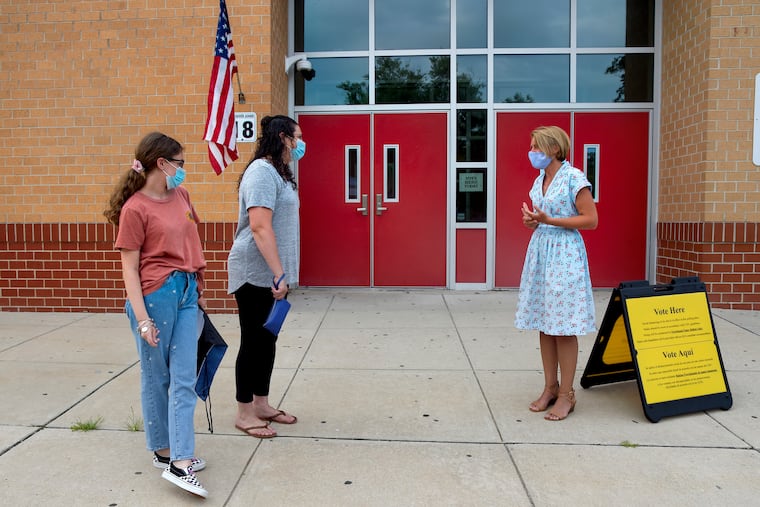Young people are in mental health crisis and New Jersey needs a plan to help | Opinion
When New Jersey's kids return to in-person school this fall, they need mental health resources.

Kids in New Jersey will soon be returning to school full time, in person for the first time since before the pandemic. We knew that reopening schools would be fraught with challenges and that states and school districts would need resources to be able to bring kids back as safely and securely as possible.
The American Rescue Plan provided $130 billion in funding for school reopening, including $2.7 billion for New Jersey. While these investments are a good start, the funds are only a short-term, partial solution for a long-term problem that will continue after the immediate public emergency.
The money New Jersey received was designated to be used, per the U.S. Department of Education, to “safely reopen schools and equitably expand opportunity for students who need it most.” Under that umbrella, states and schools were given the option to put these dollars toward mental health services.
» READ MORE: New Jersey to mandate masks for students and staff. Pennsylvania will leave the decision to districts.
On Thursday, the Department of Education approved New Jersey’s proposal for investing its American Rescue Plan money. In terms of mental health, it includes a grant to support the hiring of staff, including counselors, to “address the mental health and social emotional needs of students and educators.”
To help ensure in the long term that all of New Jersey’s youth get access to the mental health care they need and deserve, the state will need other funding. For example, according to a report recently released by Mental Health America, some states have taken advantage of the Centers for Medicare and Medicaid Services’ reversal of the free care policy to bill Medicaid for health services delivered to all Medicaid-enrolled children, not just those with an Individualized Education Program (IEP).
Unfortunately, New Jersey is not one of the 14 states that have chosen this option — and we should be. Implementing the reversal of the free care policy would allow the New Jersey Department of Education and school districts across the state to expand school-based Medicaid programs, benefiting all children. Leveraging these Medicaid dollars is one way to provide mental health services to children in schools.
But there are other investments that New Jersey and other states should consider.
As a former public school teacher, I witnessed firsthand the value of students learning the skills, tools, and information necessary for them to understand and prioritize their mental health. That is true of young people all the way from kindergarten through high school. Schools in New Jersey should be investing in the development of a curriculum that promotes mental health and increases student understanding of when to seek help at all ages.
At the same time, we cannot and should not forget the educators faced with a wide range of student social, emotional, and behavioral challenges — often while also facing their own mental health struggles. We need to educate the educators and provide them with the support and resources they need to help support kids in their classrooms.
» READ MORE: ER visits for suspected suicide attempts by adolescent girls are up over 50%, CDC study finds
Some states are also creating programs that allow community-based mental health providers to deliver mental health services in schools. These programs help address the inequities and disparities associated with health-care access, particularly for students of color.
Finally, the development of universal mental health screening programs in schools should be prioritized as equally important as existing programs that screen regularly for vision, hearing, dental, and academic deficits. When schools provide universal mental health screenings for students at key transition points throughout their education, they can increase the likelihood of success.
Both the data and the anecdotal evidence clearly indicate that we have a youth mental health crisis in this country. Young people were struggling at alarming rates before the pandemic, and those rates have only increased. From 2009 to 2019, the percentage of youth ages 12-17 who reported a past-year major depressive episode doubled from 8% to 16% and, compared with 2019, in 2020 children’s visits to the emergency room for mental health conditions increased 31% for ages 12-17 and 24% ages 5-11.
Secretary of Education Miguel Cardona said that mental health care should be “baked into the DNA of schools as a core service.” I agree. Investing in school-based mental health supports and services for our kids should not be optional. New Jersey’s youth are crying out for help, and we need to answer their call.
Amy Kennedy is a mental health advocate, board member of Mental Health America, and former candidate for Congress in New Jersey’s 2nd District.